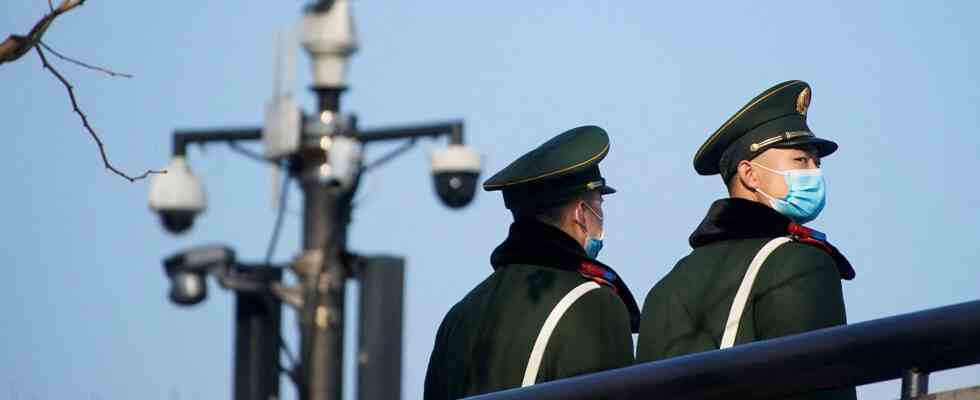As of: 04/06/2022 1:06 p.m
Freedom of association, assembly and the press are currently more restricted than ever before. The new “Atlas Civil Society” concludes that 88 percent of the world’s population are not guaranteed these rights.
Getting involved against social injustice, discrimination or environmental destruction is becoming increasingly difficult in many regions of the world. According to a study, only three percent of the world’s population live in countries in which civil society’s basic freedoms are guaranteed. That goes from the new “Atlas of Civil Society” presented by the evangelical aid organization “Brot für die Welt” together with the organization Civicus Berlin.
6.9 billion people and thus 88 percent of the world’s population live in countries where governments restrict basic rights such as freedom of expression or assembly or suppress critics. Statistically, this affects six out of ten countries. “Never before have so many countries been colored red in the atlas. Any criticism of government action is severely punished here,” said Dagmar Pruin, President of “Brot für die Welt” at the presentation of the report in Berlin.
“Atlas Civil Society” 2022: Freedom rights under pressure worldwide
Kerstin Breinig, RBB, daily news at 12:00 p.m., April 6, 2022
“The negative trend continues”
The number has increased compared to the previous year. “The negative trend continues unabated,” said Pruin. For a total of 14 countries, the rating was worse than in the previous year. Jordan and Mali and Singapore, among others, fall into the “oppressed” category in this year’s atlas. Only one country, Mongolia, has moved up a category. It can be assumed that basic freedoms will continue to decrease worldwide, the aid organization said.
In 41 countries of the world (eight percent of the world’s population) civil society is considered impaired, in 43 countries (18 percent) as restricted. 44 percent of the world’s population live in the 48 states that the study found to have oppressed civil societies. A quarter of the people live in the 25 states in which civil society’s scope for action is considered closed. In countries such as China, Iran or Nicaragua, any criticism of state action is severely punished, Pruin explained.
Never so many autocratic regimes
For human rights defenders, the work is particularly dangerous in Latin American countries, added Silke Pfeiffer, head of the aid agency’s Human Rights and Peace Department. “In Colombia and Mexico alone, half are murdered.” In addition, never before have so many autocratic regimes been counted, said Pfeiffer. “We experience that on all continents.”
The most frequently observed violation of civil society’s scope for action is the action taken against activists and journalists – especially in the context of demonstrations. “But we are also experiencing, for example, a significant decline in Internet freedom, which was at its lowest point last year,” explained Pfeiffer.
Impaired fundamental rights in twelve EU countries
Fundamental rights are also restricted in the European Union, as the atlas shows. Only 173 million out of 445 million people in the EU live in open societies, it is said. Fundamental rights are considered to be impaired in twelve EU countries, in which almost 59 percent of EU citizens live. Germany is still one of the countries classified as “open”.
The list includes Poland and Hungary, and the civil society situation in Belgium and the Czech Republic is also classified as “impaired”. “The Polish ruling party PiS has pushed ahead with a judicial reform that is seriously damaging the separation of powers,” explained Pruin. In addition, freedom of the press and freedom of expression are also restricted in Poland: “The border with Belarus was shielded from the public and the work of journalists and human rights organizations was hindered.”
In the case of Belgium, “continued violence by the security forces even at peaceful gatherings against racism and social inequality in the winter of 2020/21” caused the rating to slip.
“Democracy doesn’t fall from the sky”
Pruin appealed to governments to enable strong civil societies. Likewise, civil society itself must be aware that it must always and everywhere fight for democracy. “Democracy does not fall from the sky.”
The results of the annual investigation are based on research by the non-governmental organization Civicus, which monitors a total of 194 member states of the United Nations as well as the Palestinian Territories and Taiwan. To this end, the organization is constantly evaluating reports from local non-governmental organizations, international partner organizations and public sources.

